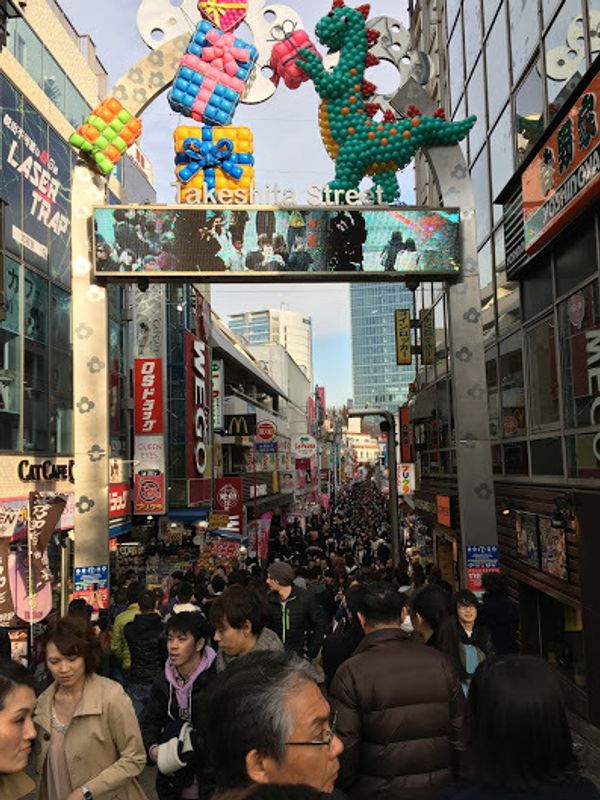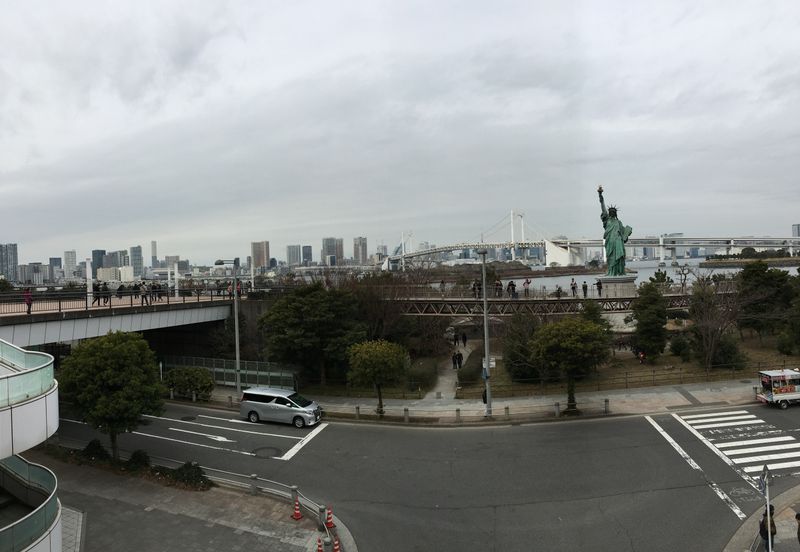Jan 27, 2018
Making communication barriers in Japan much thinner
We all know Japan is not a country where English(英語)is the main language, the Japanese have their own language which is Nihongo(日本語). Being a traveler, expat or tourist in Japan then, comes with the extra challenge -- to understand even a few of the common phrases used in Japanese and to try and meet the locals halfway in order to facilitate smoother communication with each other.

Takeshita Street during my first visit in Japan
Welcome to my first post here in the City-Cost community. With my first post, I am going to share my little knowledge on some of the useful terms or phrases that will help travelers / expats during their stay in Japan.
1. Konichiha (こんにちわ), meaning "Hello".
This is perhaps the most common word heard by visitors or tourists in Japan in greeting people. If you are a Japanese anime lover, you will likely even hear it more often. This word simply means "Hello," and we all know where and how we are going to use this one.
2. Arigatou Gozaimau (ありがとうございます)- "Thank You".
Being polite is one the characteristics that Japanese people are perhaps known for. So, being polite to them is a must for you to feel their politeness, too. This word is used a great deal during conversations and after receiving favors or help. On the other hand, you can remove the last phrase "gozaimasu" and use just "arigatou" instead. It carries the same meaning which is "thank you," only is a little more casual.
3. Sumimasen (すみません)- Excuse me (or "Sorry," at times)
If you want to get the attention of someone either for asking a favor or making a request, you may want to use this word, "Sumimasen." For example, if you want to call the waiter in a restaurant, just say "Sumimasen!" to get his or her attention.
This term is not limited to saying "Excuse me." It can be also refer to one being "sorry" for something. For instance, you bump into someone (unintentionally) while walking, you may say "Sumimasen" in expressing your apology / regret.
4. Hai / Iie (はい / いいえ)- simply means "Yes" / "No".
5. Kore/sore/are wa nan desuka (これ/それ/あれ は 何 ですか。)- What is this / that?
In the Japanese language there are three basic demonstratives which work as nouns. "Kore"(これ) when you are referring a thing which is near to the speaker. "Sore"(それ)refers to a thing near to the listener. And "are"(あれ)when the thing you are referring to is far from both speaker and listener.
For example, if you want to ask what kind of food it is that you are pointing to at a food stand, you may ask the vendor, "kore wa nandesuka?" meaning "What is this?"
So, next time you want to ask something, you may use this pattern.
6. Ikura desuka (いくらですか。)- How much?
In travelling to Japan, you can buy many things that are really unique to this country. Before making your purchases though, you may want to first ask how much the item is. In that case, you can use "Ikura desuka" or in the English translation, "How much is this?"
7. Eigo ga wakarimasuka(英語がわかりますか。)- "Do you understand english?"
In the worst case scenario, that you can't speak or express yourself in Japanese, you may ask the person you're talking to if he or she can understand English. In this case, you can say "eigo ga wakarimasu ka" or making it more simple "eigo ii desuka," "Is English OK?" or to make things even more simple, "eigo OK?" In this case you will know if you can go on and speak in English. Just reminder to take it a little slower while talking in English for others to follow your flow of thoughts. Adding some gestures may help.
There you go. I have listed some of my survival phrases while staying in Japan. You might want to memorize these terms for you never know, they may help you sometime.

Replica of Statue of Liberty in Odaiba


0 Comments